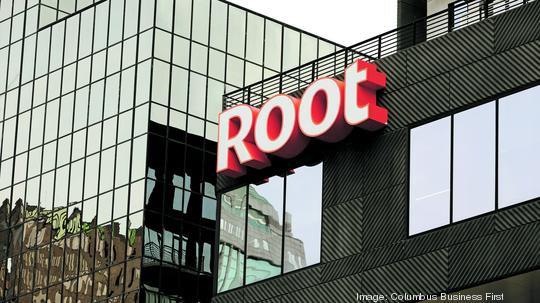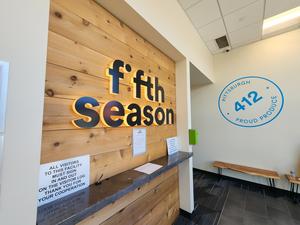
Root Inc. cut 160 jobs, nearly 20% of its workforce, on Wednesday as the auto insurer goes all in on auto policies presented to car buyers at time of purchase instead of direct sales.
Sales of such policies to Carvana Co. customers have tripled so far this year – now 38% of new business, and the parent of Root Insurance Co. expects to announce a second major partnership for embedded quotes in the coming months, executives said in reporting third-quarter results Thursday.
"We are at the very beginning of a massive shift of auto insurance distribution, and we are at the tip of that spear," co-founder and CEO Alex Timm told analysts in a recorded call. "One thing has been made crystal clear: Root must control its own destiny."
It's the second major round of job cuts this year at Root (Nasdaq: ROOT). In January, the company terminated 330 employees.
Mass reductions in force have been widespread in the tech industry this year, notably thousands this week at Facebook parent Meta and at Twitter. Central Ohio has also seen large cuts at Lower.com and Olive AI Inc.
Root's expense cuts, which include "non-headcount" measures, will result in ongoing annual savings of $50 million. With $629 million unencumbered cash, Root is relentlessly cutting expenses to preserve cash until it can turn profitable.
The company had a net loss of $66 million on $74 million revenue in the quarter ended Sept. 30. The net loss is $238 million through nine months, narrowed from a $415 million nine-month loss the prior year.
Adjusting for non-cash and one-time expenses, the company had earnings of $73 million for the quarter, a metric Root uses to track progress.
Besides cost-cutting, Root increased rates by an average 35% this year. Moving early reduced its claims losses to 79% of premiums, a 14-point improvement compared to the same quarter of 2021. Meanwhile other insurers have seen loss ratios increase, Timm said.
"This effectively tripled the margin of our business," he said. "That improvement is the bedrock of our ability to profitably scale, but it is just step one."
The long-term goal is a loss ratio of less than 65%.
Through the first nine months of the year, Root reduced its cash burn by $200 million compared with the same period of 2021, including slashing its marketing budget by 81% year-to-date.
"We are moving closer to our optimal cost structure," CFO Rob Bateman said.
The job cuts are in marketing and staff supporting the direct auto insurance sales that are lower priority, executives said. Social media posts indicated actuaries were affected as well.
"We do not believe we are cutting to the bone," Timm said.
Despite the cuts, Timm said, the core technology team was able to keep releasing improvements to Carvana Insurance built with Root – a quote that appears at the time of an online purchase through the Arizona company.
"A lot of these customers are purchasing for ease instead of price," Timm said. "They are comparing us with fewer options."
That resulted in ongoing declines in overall premiums – shrinking in every state except Colorado. But renewing policyholders are a greater share of the total, meaning better profitability.
“Root maintains its focus on underwriting profitable business, albeit at the expense of growth," Elyse Greenspan, an analyst with Wells Fargo, said in a research note.
The top line won't be growing again during the coming year, possibly into 2024, Bateman said. Root is spending less on marketing and focuses on adding more partners like Carvana.
This was the fifth consecutive quarter that Root's losses were narrower than the consensus prediction of analysts.
"It remains early days in management’s efforts to reposition the company," said a research note from Matt Carletti, analyst with JMP Securities, a Citizens company. "We applaud management's commitment to quickly pull back on marketing expenses (81% reduction YTD), drive pricing increases ... and rein in operating costs."
The stock ticked upward Thursday – but following this summer's 1-for-18 reverse stock split the share price of around $7 since mid-October is a far cry from the $464 adjusted price of its IPO two years ago.







